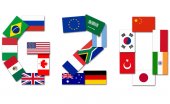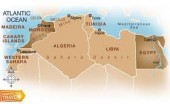Molly Minturn - My family is heartbroken to share that my father died in surgery on Monday, Feb. 10. It…
Wednesday Night #1427
Written by Diana Thebaud Nicholson // July 8, 2009 // Agriculture & Food, Canada, China, David/Terry Jones, Geopolitics, Justice & Law, Kimon Valskakis, Politics, Reports, Rights & Social justice, U.S., Wednesday Nights // Comments Off on Wednesday Night #1427
Science and ethics
The announcement that British scientists claim to have created human sperm in the laboratory from embryonic stem cells has generated both scientific and ethical controversy and raises not only the issue of the morality of destroying human foetuses for that purpose – harvesting the stem cells is what kills the embryo – but also the increasingly evident source of what appears to be increasing human as well as marine infertility. The de facto killing of human foetuses is a constant topic for debate with those opposed likening it to removing donated organs from moribund humans while they are still alive. Moreover, the creation of sperm from an embryo leads to speculation regarding the resulting children whose male ‘parent’ never reached adulthood. A broader issue is the effect of medication, in this case, oral contraceptives and other oestrogen-based medications dissolved in waste water through urination that finds its way into the waterways and sources of drinking water, adversely affecting marine as well as human life and fertility as the quantities increase. This raises the question of whether improved filtration might remove the oestrogen from our drinking water.
Ethicists raise concerns that much of the scientific – biogenetic – experimentation that is being conducted today is done so without any sense of (or preoccupation with) long-term and/or unintended consequences of such discoveries.
The new field of Epigenetics raises issues with respect to free will that are important in criminal law, which is based on the assumption that all humans have free will and thus may choose – or not – to participate in criminal activity, leading to a defense of my genes made me do it.
Doctor Ewen Cameron’s experimental use of L.S.D. in the 1940s led to unnecessary suffering for patients and personal condemnation. In the light of attitudes of the twenty-first century his actions appear unconscionable but at the time, frontal lobotomies and crude bone-crunching electroshock were common and recommended; Dr. Heinz Lehman’s introduction of the phenothiazines was lauded and indeed, proved to be a breakthrough in psychiatric pharmacology. It is perhaps unfair to regard the actions of that era through the eyes of twenty-first century ethics. Today, the major pharmaceutical firms are hiring medical ethicists but undoubtedly, future generations will judge the ethics of actions now being taken. Possibly criticism will arise out of our current system of continuing to reward scientists whose reporting skills (If you have published a great article, chances that someone will write you a large cheque are greatly improved) surpass the quality of their research – although reproducibility is now becoming a more important factor in the acceptance of scientific reports for publication.
The economy
The current world financial crisis is not expected to end in the near term. Emerging markets (India, Indonesia, South Korea, China, Brazil) continue to be viewed favourably, having less debt and a young population that adapts quickly to new technologies and is eager to work – it’s a long time since we saw 7% growth in Canada .
The market has been on the rise since March 9, the TSX rising from 7,500 to 10,500 over that period. A stable July and August is anticipated, followed by a further surge until the end of 2009, followed by a weak market next year. For numerous reasons, the injection of cash is not expected to produce the prolonged positive effect that it did in 1945. The early part of 2010 is expected to produce discouraging statistics.
In the United States, the individual states are deeply in debt; the unemployment figures in Canada are expected to rise to unacceptable levels and developing countries are experiencing social and political problems. Measures taken by governments have been dependent on consumer spending, but consumers in the G-10 are in a saving and household balance sheet rebuilding mode, while our system of government has for many years relied on consumerism, whether sales or other related taxes. The U.S. will see a reduction in sales tax revenue that will take years to overcome. With devaluation of housing, municipal tax revenues are dropping. While the Feds are trying to stabilize, destabilization is taking place at the state and municipal level. California is in big trouble as are the other states and cities. In the view of some of our experts, problems in the U.S. may require a second stimulus package, although others remind us that a lot of the current stiumuls money has not yet been distributed.
The premature exit of the President of China from the G8 summit is an indication of the seriousness of China’s current ethnic violence in Xinjiang province, where manifestations by Muslim Uighurs have resulted in an overkill response by Chinese security forces. Since the days of the Emperors, China has relied on rigid military rather than civilian control, whose strict enforcement of the rules make the prediction of the end result very difficult. There are grievances in many regions of China and the unrest in Xinjiang could be infectious. In looking at this situation, it must be remembered that the population of China includes some 40 million non-Chinese ethnics, with the concentration of Muslims in western border regions. The beginning of the awakening of the Islamic world began in the Middle East during WWI and WWII, continuing in the post-WW I period, and is now spreading into the former U.S.S.R. southeast and more recently to China and elsewhere. It starts with competition for jobs and grows.
Parallels with Iran are notable (Managing Dissent in China and Iran). In Iran, the established order upheld by politicians and Ayatollahs is being challenged by the younger generation who, thanks to the spread of Internet technology have thus gained easy access to the rest of the world. When the Shah was overthrown, the clerics began to shift from their traditional alliance with the people to one of power and political influence. Khomeini and the Islamists filled the vacuum left by the imperial government and gradually the clerics lost the respect of the population. Today, a certain element of the clerical establishment is again realigning with the people as evidenced by the recent pronouncement by an important group of mullahs of Qum This comes as for the first time, the people now have the means to react to and attempt to change not only the regime, but the system. Despite the intransigence of the leadership supporting Ahmedinijad and repressive measures taken against the demonstrators, and no matter what happens in the short term, there is a feeling that this is a defining moment from which Iran will not turn back.
The world’s financial problems, the small cracks seeming to appear in the European Union and social unrest in many countries bear witness to the ever changing political face of the world. Unfairly, the United Nations is held to blame for the folly and frailty of human beings, but the some 60,000 dedicated people representing their country and the world in that organization – often in the most dreadful conditions – have slowly if sometimes clumsily helped move us towards an eventually safer and more humane planet. At the end of the day, diplomacy does work.
T H E I N V I T A T I O N
As she was unable to be with us last week, we will have the pleasure of having Anita Szlazak with us this Wednesday as she wraps up her meeting at ICAO of the UN International Civil Service Commission – an independent expert body established by the UN General Assembly “to regulate and coordinate the conditions of service of staff in the United Nations common system, while promoting and maintaining high standards in the international civil service.” Anita has had a distinguished career and is arguably a trail blazer, as among other achievements, she was named Director General of International Telecommunications in the Department of Communications at the age of 30 – at a time when few women reached the DG level in the Canadian civil service. She subsequently served as a Commissioner of the Public Service of Canada, a member of the Canadian International Trade Tribunal, and a senior policy advisor at Treasury Board. She is an avid skier and sports enthusiast who was a representative of the government of Canada in the run-up to the Calgary Winter Olympics, and she is an equally keen supporter of the arts.
We hope that many of you will be back in town after the triple holidays of Quebec, Canada and the Glorious Fourth.
It has been quite an eventful time. Sarah Palin’s resignation accomplished the unthinkable and pushed Michael Jackson off the front pages – at least in any of the serious media – and the pundits’ conjectures have been almost as melodramatic as those on the entertainment pages about the King of Pop’s demise. What timing — Vanity Fair could not have hoped for so much free publicity from its media peers. Are there any copies left on the newsstands?
The G8 Summit looms (opening of course on Wednesday) amidst agenda items whose relative importance seems to be shifting like the earth under L’Aquila – first it was all about the economy and climate change; now with the Oxfam Report, it looks as though there will be considerable focus on agriculture, food and hunger related to climate change. Then there’s the nagging issue of global currency reserves, with China and India wondering very loudly about whether there should be more eggs in the basket. The meeting of the Major Economies Forum on Tuesday, will try to come up with a common approach for the new Climate Change Agreement, but it seems doubtful that there will be sufficient shift in positions to enable them to do so – even with President Obama in the Chair. Corporate Social Responsibility is on the menu (please see Kimon Valaskakis’ excellent paper for the G8 Research Group. Finally, there’s Iran – can the G8 arrive at a common position for dealing with the volatile situation and nuclear threat?
Iran continues to dominate our concerns. While our sympathies and hopes lie with the Green dissidents, we do not see how they can resist the ruthlessness of the authorities. It appears that there are big cracks in the solidarity of the mullahs and religious powers, but how – and if – the situation will be resolved in the long term remains a big question. The turmoil combined with the potential nuclear threat is deeply worrying. The arrest and pending trial of Maziar Bahari, the Iranian/Canadian journalist who works for Newsweek, leads us to wonder whether the Canadian government will do anything to intercede for him.
This serves to underline a topic that has been raised recently and which we believe is extremely important – what can you expect the Canadian government to do for you if you get into trouble overseas? Please read At the mercy of the government and if you have any lingering doubts, see David Jones on The Abousfian Abdelrazik Puzzle in this week’s MetropolitaIn, which also has extensive coverage of events in Iran and Canadian reactions. And note the difference in the French government’s reaction to the arrest of a French academic by the Iranians.
There is much, much more: China’s problems with the Uighurs , Ban Ki Moon’s unsuccessful trip to Burma/Myanmar, Obama’s apparent love-in with Medvedev and Putin – we like the Globe & Mail headline “Obama, Medvedev hit reset button on nuclear gamesmanship” … however we will leave you with a disquieting thought. The BBC announced that Vatican Radio has started carrying ads for the first time in its 80-year history. Stephen Kinsman wonders ‘whither CBC’ , while we note that Mr. Harper is off to meet the Pope after the G8 – guess what they’ll be talking about?
We look forward to seeing you this Wednesday and are sure we will have more and better conversation – also likely not so (C)conservative – than the PM and the Pope.



